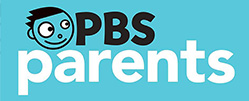Facilitating Off-Screen Learning
Play is children’s work. We’ve all heard that statement before, but why is play so essential to a child’s healthy growth and development?
Play is the time when children imagine, think critically, experiment, discover consequences and persevere. They develop communication and social skills during group play, and build self-esteem and determination when playing independently. The learning that happens when children play on screen is reinforced when adults provide concrete, hands-on learning opportunities off screen as well.
Let’s listen to Dr. Brody talk about the importance of play and connecting screen time learning to real world experiences.
It is essential for children to have hands-on experiences to connect their screen-time learning to the world around them. As you’ve learned in this module, high quality educational media provides children with opportunities to explore new places and investigate concepts in fun and entertaining ways. Children can practice spatial reasoning and mentally manipulating and rotating objects…skills they will need as they begin to develop abstract thinking later on.
Concrete and Abstract Learning
Young children are tactile learners, meaning they need to touch and feel objects to better understand the world around them. Concrete play gives children the opportunity to engage their whole body in learning. When children have opportunities to create, build and manipulate materials they develop a deeper understanding of the concepts they have seen and practiced on a screen.
Abstract learning allows children to engage in a sense of wonder and imagination. When a child holds a paintbrush in her hand and uses it like a microphone to sing a song, she is using the paintbrush as a symbol of something else. She is learning to think abstractly through pretend play. Encourage children to use blocks to “bake cookies” or give them paper and crayons to pretend to write grocery lists. Play along and take a pretend bite from the “cookie” and accept their scribbles and letter-like shapes as writing.
Do you know the difference between abstract and concrete learning? See if you can correctly identify each example in the True/False quiz below.
Check It Out!
 Visit PBS Parents for great examples of hands-on, learning activities.
Visit PBS Parents for great examples of hands-on, learning activities.









